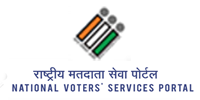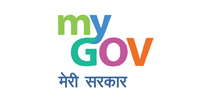About Us
ICAR-Central Institute for Women in Agriculture (ICAR-CIWA) is an institution first of its kind in India that is exclusively devoted to gender related research in agriculture. Established as National Research Centre for Women in Agriculture (NRCWA) in April 1996 at Bhubaneswar (Odisha) under Indian Council of Agricultural Research, New Delhi, following the recommendation of the Working Group on Agricultural Research and Education, constituted by the Planning Commission for the formulation of the 8th Five Year Plan (1992-97), the institute has been undertaking research on various issues affecting women’s role and participation and the emerging opportunities in agriculture. It focuses on participatory action research in different technology-based thematic areas involving farm women to make farm technologies suitable for them. The Institute also takes up activities to catalyze and facilitate research and development institutions to bring farm women perspective in their research and development programmes. The Directorate has been upgraded and renamed as “ICAR-Central Institute for Women in Agriculture” (ICAR-CIWA) in the year 2014 under XIIth plan EFC.
The importance of such a dedicated institution has grown manifold over the years as gender dynamics in agriculture is poised for a great change, particularly in the context of changing socio-economic, institutional, policy and natural environment. The proportion of women agricultural workers who constituted 71.8% of total women workers in 2001 came down to 65% in 2011. On the other hand, share of women in total agricultural workers that exhibited an upward trend till 2001 declined to about 37% in 2011. The direction and extent of change across Indian states also varies widely. Moreover, women in India are subject to varied forms of inequality that reduce the pace of their progress. Therefore, better understanding of women’s involvement in agriculture is also a pre-requisite for planning and promoting and gender responsive actions to achieve the twin objectives of women empowerment and sustainable agricultural growth. Given the fact that agriculture is less attractive economic vocation for many men and women, it becomes more important to find ways and means for increasing the productivity of workers, more importantly the women workers, in agriculture as there will be continuous rise in participation of women in agriculture and allied tasks in future.
Timeline of development of the institute
| 1996 | Established NRCWA |
| 1997 | Established Sub-centre at CIAE, Bhopal |
| 2004 | Occupied permanent building |
| 2007 | AICRP on Home Science (10 centres) merged |
| 2008 | Upgraded to DRWA |
| 2013 | ISO 9001-2008 Certification |
| 2013 | Established 3 more centres of AICRP (HS) |
| 2014 | Upgraded to ICAR-CIWA |
- Back to previous page
- |
-
Page last updated date:23-05-2024 06:39 PM
 भारत सरकार | Government of India
भारत सरकार | Government of India









